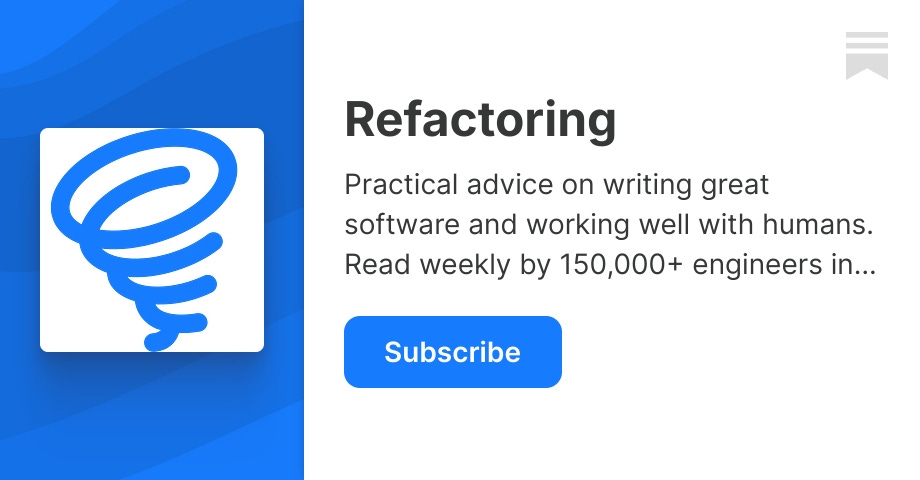Sublime
An inspiration engine for ideas
Continuous Architecture in Practice: Software Architecture in the Age of Agility and DevOps (Addison-Wesley Signature Series (Vernon))
amazon.com
When we want to mark a new domain concept in the code, we often introduce a placeholder type that wraps a single field, or maybe has no fields at all. As the code grows, we fill in more detail in the new type by adding fields and methods. With each type that we add, we’re raising the level of abstraction of the code.
Nat Pryce • Growing Object-Oriented Software, Guided by Tests (Addison-Wesley Signature Series (Beck))

This technique works: you can write all the set_property methods you need, and the instance variable–based retrieval methods to go with them. But there’s a nicer way.
Joe Leo • The Well-Grounded Rubyist
In the real world, the systems we build are part of complex adaptive systems that encompass developers, users, and customers, as well as their environments and organizational contexts. This reality calls for a more dynamic, almost organic approach to architecture and design, one that allows you to learn as you go and adapt your software to ever-cha
... See moreNeal Ford • Software Architecture Metrics
This is a good place to introduce the idea of using an engineering model approach to software development as opposed to the contractor model. First consider the typical contractor model. Under this model, whether used by employees or actual contractors, developers must be given accurate tasks to work on, and they must not fail in even small ways. T
... See moreTomasz Jaskula • Strategic Monoliths and Microservices: Driving Innovation Using Purposeful Architecture (Addison-Wesley Signature Series (Vernon))
Jeff Patton, one of the early Agile thinkers, was frustrated by this, so he leveraged some proven UX design techniques, and adapted them to Agile concepts and introduced user story maps.
Marty Cagan • INSPIRED: How to Create Tech Products Customers Love (Silicon Valley Product Group)
Refactoring | Luca Rossi | Substack
refactoring.fm